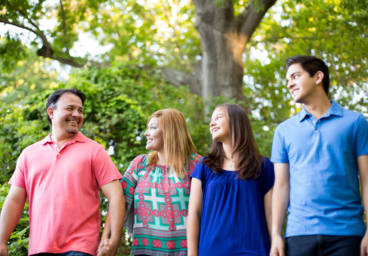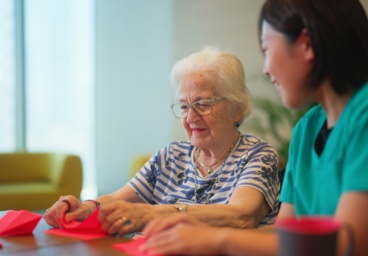Safe Asleep Program

The Safe Asleep Program provides up to three free home visits by a certified staff member to teach parents, guardians, and families about the importance of giving babies a safe sleeping environment.
In Tulare County, 14.5% of infant deaths from 2015–2017 were caused by accidental suffocation or strangulation in bed, Sudden Infant Death Syndrome (SIDS), and Sudden Unexplained Infant Death (SUID). The Safe Asleep program provides participants with education, tools, and tips to reduce risks associated with infant sleeping conditions and to improve the health and safety of infants and their families.
What is SIDS?
Sudden Infant Death Syndrome (SIDS) is used to describe the sudden death of a baby younger than 1 year of age that does not have a known cause, even after a full investigation.(1) This investigation includes a complete autopsy, review of the circumstances of death and clinical history.(1) If cause of death cannot be determined, the medical examiner or coroner may categorize the death as SIDS.(1)
SIDS is not the sole explanation for every sudden or unexpected infant death that occurs during sleep. “The death of a baby that is sudden and unexpected and that doesn’t have an obvious cause before an investigation is called a Sudden Unexpected Infant Death (SUID). SUID is an umbrella category that includes all sudden, unexpected infant deaths—those from known causes, such as an injury or accident, and those from unknown causes, such as SIDS.”(1) Approximately 3,000 cases of Sudden Unexpected Infant Death (SUIDs) take place in the United States annually, and more than 1 in 3 are from Sudden Infant Death Syndrome (SIDS).(1)
Research has shown that the risk of an infant dying from Sudden Infant Death Syndrome can be reduced by following a number of “Safe Infant Sleep” recommendations (2):
- Infants should sleep flat on their backs for every sleep.
- Use a firm sleep surface without blankets, quilts, sheepskin, etc.
- Room-sharing, but not bed-sharing, is recommended.
- Keep objects and loose bedding out of the crib.
- Pregnant women should receive regular prenatal care.
- Avoid cigarette smoke exposure during and after pregnancy.
- Infants should never be exposed to cigarette smoke.
- Avoid alcohol and illicit drug use during and after pregnancy.
- Breastfeeding is recommended.
- Consider offering a pacifier at sleep, but do not persist if the infant refuses it.
- Avoid overheating. Do not overdress sleeping infants.
- Infants should receive regular immunizations on the normal schedule.
- Avoid commercial devices marketed to prevent SIDS.
While these Safe Infant Sleep recommendations will not prevent all SIDS, they will reduce your baby’s chance of dying from SIDS. SIDS appears to be a natural cause of death, and research suggests that abnormalities in brain stem neurotransmitters are present in many SIDS babies. Please adhere to Safe Infant Sleep recommendations if you care for any infant, and help support those families who have had a baby die from SIDS.
References:
(1) U.S. Department of Health and Human Services. (n.d.). What is SIDS?. Safe to Sleep. https://safetosleep.nichd.nih.gov/about/sids-definition
(2) U.S. Department of Health and Human Services. (n.d.). Ways to Reduce Baby's Risk. Safe to Sleep. https://safetosleep.nichd.nih.gov/reduce-risk/reduce
-

- My Story: Losing an Infant to SIDS
-
To increase awareness of SIDS, follow this link to read personal stories from families affected by SIDS.
-

- Safe Kids Worldwide
-
Click here for more information on keeping kids safe!



